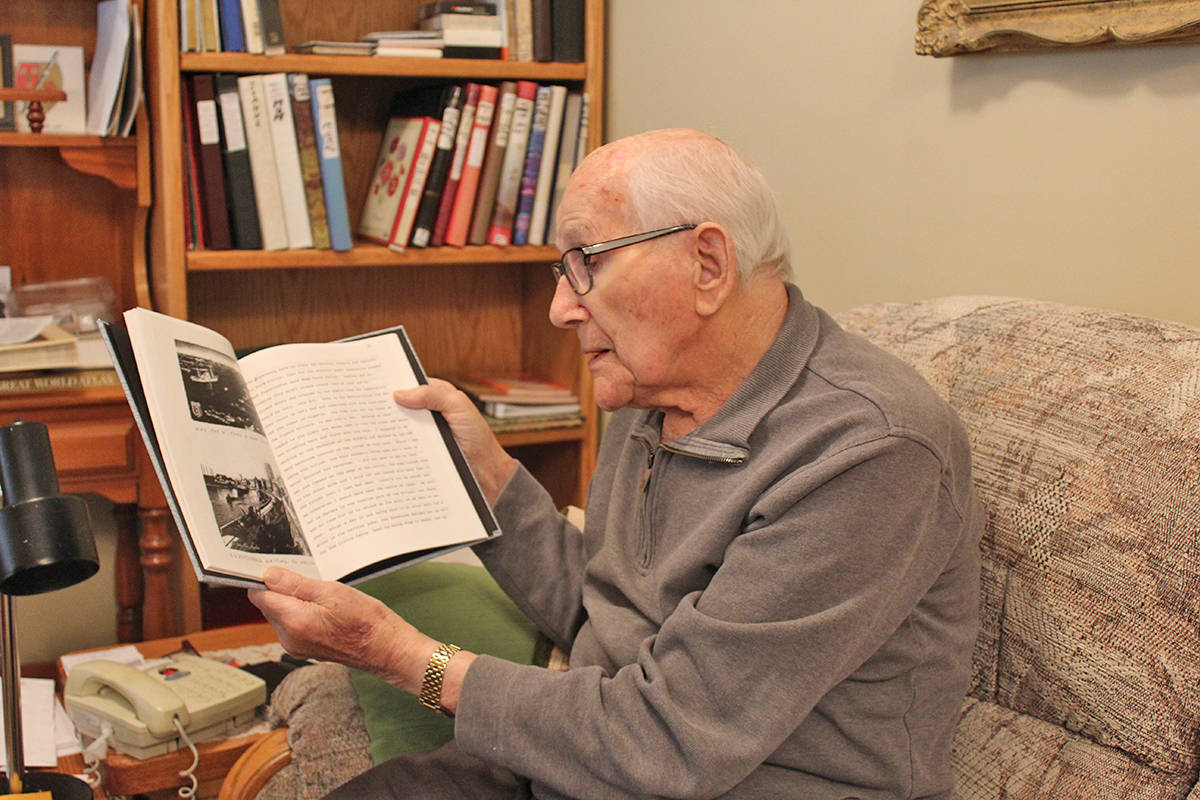Sitting in his retirement residence, Thomas Pyper reflected back on his sailing two years after the Second World War had taken place.
Although he never served himself, the images of remnants left over from the war are forever ingrained in his mind.
Originally from Holland, Pyper’s journey into a full life of work began at a young age.
“When you were 13 years of age you had a choice. You go to Grade 8, you go to high school, you go to work or trade school, and I decided to go to trade school as a machinist blacksmith,” said Pyper.
He then went to work when he was 16-years-old. He then worked as an engineer on a few ships, climbing his way up.
He later began sailing as a Dutch merchant marine engineer in 1947, with his first trip being to Poland.
Pyper ended up sailing on three different ships, and was gone for 1,061 days over a few years.
“Half of it I was married, so my wife was alone,” he said.
And what Pyper saw while on those sailing trips was unforgettable.
In a book he wrote several years ago titled A Sailor’s Life, Pyper reflected on what he saw during that time.
On route to Poland, the ship he was on sailed through a channel that had been swept clean of mines.
When he arrived in Stettin, a former German city now incorporated by Poland, he saw many leftovers of the war, as the British had been bombing much of that area.
“It was so bad that it looked like the war had ended in that week or day before. It was a horrible mess what I saw there,” said Pyper.
What he saw, and referenced in his book, were half finished ships and u-boats scattered all over the place. Buildings were caved in and there were a lot of Russian soldiers with rifles over their shoulders.
In another trip, which took Pyper past the mouth of the Thames River, he was reminded once again of the damages done by the war.
“When we came out of the north sea, which is between Scotland and England and Holland, the mouth of the Thames River was littered with masts sticking out of the water,” he said.
Pyper added that he had thought the ships had been torpedoed, but learned otherwise.
“The British had sunk them so the u-boats would not be able to sneak up the Thames River.”
On another trip in the Atlantic Ocean, Pyper came across yet another reminder of the Second World War, a life raft floating on the water. It made him reflect on who might have been on it at that time at least two years ago.
Over his six years as a sailor, Pyper made many trips visiting countries like Spain, Algeria, Morocco and more. He also sailed to many islands in the Carribbean.
By 1954, after obtaining his third class Marine Engineer Certificate, Pyper decided to make the move to Canada, following many of he and his wife’s relatives.
He later ended up in Calgary, working at the University of Calgary as a stationary engineer, before moving to Kelowna to retire.
Sitting on Pyper’s bookshelf is a book titled The Cruel Sea by Nicholas Monsarrat, and what he learned about the loss of ships shocked him.
What he learned was that he sailed over many sunken ships, which had a lot of those sailors unable to escape.
He said he related as he was a marine engineer, always working below the sea level, similar to what those who died did. Those ships that were sunk during the war were generally always targeted by torpedoes in the middle of the ship where the boiler rooms were.
Overall, Pyper stated in his book that sailing was an experience he will never forget.
carlie.connolly@reddeerexpress.com
Like us on facebook at https://www.facebook.com/RedDeerExpress/ and follow us on twitter at https://twitter.com/RedDeerExpress.



